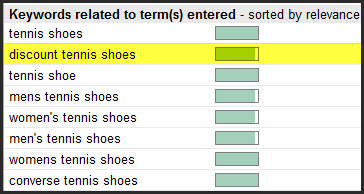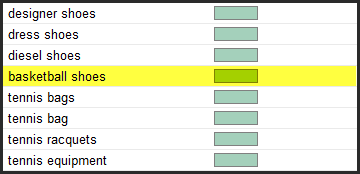Broad Match – Learn About the Broad Match Keyword Type
Broad match is one of the keyword matching options offered by Google Ads and other PPC advertising platforms. It has also become more important as the modified broad match type has gone away. In this tutorial, you’ll learn:
- How Broad Match works.
- Why it’s important to you and to your PPC campaign.
- And how best to utilize the Broad Matching option.
What Is Broad Match?
Basically, broad match is a keyword match type that search engines use to determine which search terms your ads are eligible to match against. It’s called “broad” because it allows your ad to match the widest range of possible keyword searches that are still somewhat related to your keyword.
Google defines broad match as:
Broad Match – This is the default option. If your ad group contained the keyword tennis shoes, your ad would be eligible to appear when a user’s search query contained tennis and shoes, in any order, and possibly along with other terms. Your ads could also show for singular/plural forms, synonyms, and other relevant variations. For example, your ad might show on tennis shoe or tennis sneakers.
So basically, this option lets you pick a term related to your business, and attempts to discover other terms that search engines deem relevant to your ad.
Use our Free Keyword Tool to find the best terms related to your business,
The Importance Of Broad Match Keywords
So what does all that mean to you? Why do you need to know about broad match? Well, for starters, there’s this:
“This is the default option.”
Your keywords are automatically set to the broad matching option as you upload them, so it’s useful to understand the impact of leaving broad match turned on.
The impact is that the keyword you’ve selected is now automatically being matched against a broad array of related queries. This has two interesting (and contrasting) ramifications:
- Discover and bid on new, useful broad matched keywords – Broad match can provide you with a host of new phrases that the search engines deem relevant to your business. Phrases you wouldn’t be able to come up with on your own.
- Discover and bid on completely irrelevant broad matched keywords – In addition to the good stuff this option will unearth for you, it will also match your ad text to completely irrelevant keywords. The search engines, after all, offer automated solutions and don’t truly know your business.
So, we see that broad match is simultaneously adding quality phrases to our keyword lists while also spending our money on unrelated clicks.
Let’s take a closer look at Google’s “tennis shoe” example to get a better idea of what we mean.
Google’s Expanded Broad Match
We’ll ask Google’s own keyword tool what it considers “relevant” to tennis shoes:

Here we see that Google has offered some suggestions; these all seem pretty good. If I sell tennis shoes, I’ll probably want to show for these. There could be a case where I sell high-end tennis shoes and don’t want to show for a phrase like “discount tennis shoes”, but on the whole this is pretty good.
Unfortunately, that’s not all the queries my ads are running against.
Here are some more keywords Google may be matching your ads against:

This is known as “expanded broad match”. Around 2006 Google introduced this broad match expansion, which basically means that the engine’s algorithm more aggressively matches your ads against what it deems are relevant variations of your keywords.
The problem is that these variations may not be all that relevant. We see here that Google has determined that these terms “may be relevant” to our business. But what if:
- We only sell tennis shoes – Dress shoes and other tennis equipment certainly aren’t keywords we want our ad to show against, in that instance.
- We only sell tennis equipment – Again, we don’t want our ad showing against dress shoes and basketball shoes.
- We only sell shoes – We don’t want our ad to show for tennis equipment and rackets. Also, we won’t want our ad text and landing page talking about tennis shoes when our ad is appearing next to dress shoes.
But, if we choose a more restrictive matching option, we may miss out on valuable variations of tennis shoes, like “tennis shoe” or specific tennis shoe brand names, etc.
So, we need to find a means for implementing broad match without wasting money on irrelevant clicks.
Getting the Most Out of the Broad Match Type
In 2021, Google announced improvements to the broad match type, especially as it retired modified broad match six months prior. Even still, you need to be careful with using broad match.
The only way to use the expanded reach of broad match while restricting that reach to only relevant queries is to implement negative keywords within your account.
Setting a negative keyword tells search engines: “Don’t show my ad against this query.”
The challenge with negative keywords is much the same as the challenge with keyword research and discovery: how do you find all the keywords you don’t want your ad to show against?
Try WordStream’s Free Keyword Tool to Find Your Best Keywords
Our Free Keyword Tool provides suggestions for Google and Bing separately so you can refine your targeting on each search network. To see how it works and find your best keywords try the Free Keyword Tool today.
